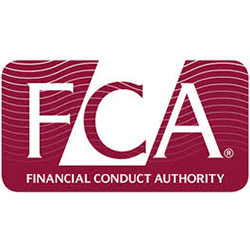FCA intends to spend an extra £5.2 million on SM&CR
Chris Hamblin, Editor, London, 16 October 2018

Recently-released minutes from a meeting of the board of the UK's Financial Conduct Authority on 25/26 July state that the regulator is planning to spend far more than originally intended on helping firms comply with the Senior Managers and Certification Regime, which is designed to make managers at financial firms more accountable for breaches of the rules.
The SM&CR rules have applied to banks since 2016 but are being imposed on the rest of the financial regulated community in December next year, according to an announcement in the summer. The increase is a sign that the FCA is finding its job of managing the transition more onerous than it originally supposed.
The minutes state that "the board approved the drawdown of a further £5.2m for the Senior Managers’ and Certification Regime Programme’s work in the period July 2018 to the end of March 2019." This implies that even greater outlay might be needed in the final nine months of the operation, and possible more afterwards if all fails to go well.
The document also reveals that the FCA has approved, in principle, an extension of the Financial Ombudsman Service's remit to cover trusts (along with small businesses and charities) and a new class of personal guarantors. However, it wants to receive a cogent proposal for this from the FOS itself before agreeing to the extension and wants the FOS to "address several recommendations made by the independent review on complex complaints and case-work quality." It has also agreed to review the existing binding award limit of £150,000 for each FOS case which, according to Ian Cornwall of PIFMA, does not put off HNW investors from making claims.
Juan Diego Martin, the chief operating officer at Fonetic, told Compliance Matters: “This announcement is certainly a step in the right direction. The extra funding and wider scope shows a clear intent from the FCA to ensure personal accountability for senior execs working across finance and the need to keep track of all kind of records including HR and communications. Financial institutions are under increased pressure to show that they are compliant. For those who can get their approach to surveillance right, this represents a real opportunity to make positive changes in the way people are hired, surveilled and sanctioned within financial institutions, and how these events need to be made public to the regulator.”
Commenting on the plan to raise the FOS's existing binding award limit, PIMFA CEO Liz Field had some words of warning: “PIMFA are deeply concerned that this proposed move could act as a barrier to entry for smaller firms as this will impact a firm’s ability to obtain Professional Indemnity Insurance (PII) at a viable economic cost. This could reduce the number of firms within our profession and further widen the advice gap. We will be responding to the consultation paper and raising our concerns with FCA. Our profession has an essential role to play in helping to build a culture of savings and investments, and this move could severely impact firm’s ability to be able to provide this vital service to clients”.












